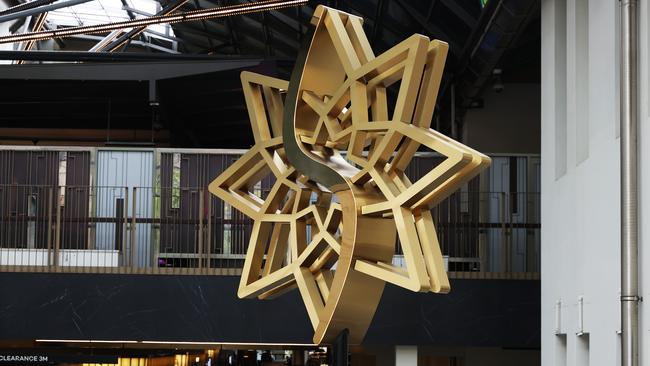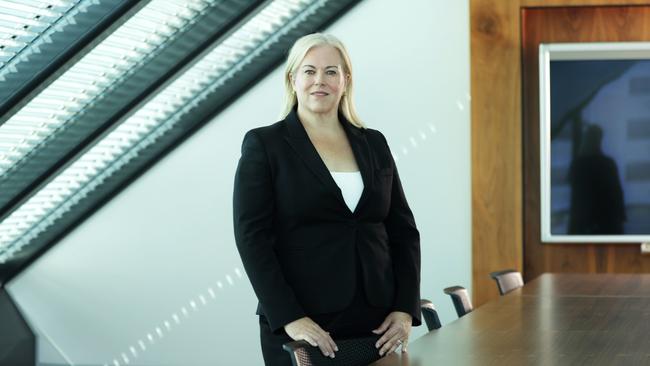Gaming financial monitor Kroll says road ahead far harder than competitor Crown
Gaming financial monitor Kroll says Star’s broader array of gaming products makes its reform process much harder than rival Crown, whose own monitoring has come to an end.

Fixing Sydney’s Star casino is going to be far harder than Crown Barangaroo, says gaming financial monitor Kroll.
Speaking as the monitoring of Crown Barangaroo concluded, two key figures in Kroll’s financial practice said Star could not begin from scratch as Crown had in fixing its financial controls.
Star is facing a second inquiry into the Sydney casino’s attempts to fix its financial failures, and already the group’s chair and chief executive have departed amid a falling out with the NSW Independent Casino Commission.
Casino inquiry boss Adam Bell, SC, last week called out Star’s lack of progress over the past 18 months while the future of the casino’s gaming licence was on the line.
Announcing plans to hand Crown Sydney a full gaming licence two weeks ago, NICC chief commissioner Philip Crawford praised Kroll’s monitoring of the casino, after being appointed in June 2021.
Mr Crawford said Kroll had “played a very important role in the supervision of the requirements of the gambling operations to comply with their obligations on the pathway to security”.
Kroll’s Australian head of investigations, Gary Gill, said Sydney’s Star had key differences from Crown, noting that Star’s casino in Pyrmont, unlike its Barangaroo rival, was trying to fix its risk and financial crime problems while also being an operating venue.
Star has more than 1400 gaming machines, while Crown Sydney is limited to table games targeted at VIPs and high rollers.
Mr Gill said Star had to come up with a remediation plan the NICC “found acceptable”.
He said the casino did not have the luxury of Crown in preparing a new operating procedure prior to opening its gaming spaces.

This involved Kroll drawing up guidelines, alongside those already in place from Crown, in which the casino ran faux gaming nights and stress tested a suite of new controls ahead of its opening in mid-2022. These exercises were aimed at ensuring the casino’s staff were trained to ask the right questions and looking for the right cues.
Mr Gill said Kroll had worked closely with the NICC to draw up the remediation plans for Crown.
Key areas included risk management and cultural problems at the gaming company.
Crown faced an almost total clean-out in the wake of the scandals and the Melbourne, Sydney, and Perth casinos were the subject of separate inquiries.
Mr Gill said the key to Kroll’s work at Crown was putting in controls for wealth identification, knowing who was gambling and whether their money was legitimate.
“The fact is that it’s a VIP-based casino, it’s targeting high rollers, there was a bigger focus on how do you identify wealth,” Mr Gill said.
Kroll managing director and head of the firm’s anti-money laundering advisory Amanda Wood said Crown’s new assessment model was built around the risk attributes of customers.
“There were certain things that would make a customer at higher risk, just in terms of their demographic information,” she said.
This led Crown to closely review how much customers were gambling, in relation to their peers, and whether they had engaged in behaviour that may signal financial crime, such as converting cash into chips but only placing a few bets before returning the balance to cash.
“If you’re looking at the risk of money laundering or using the proceeds of crime in table games versus electronic gaming machines, there are different methodologies used,” Ms Wood said.
“At a customer level the form of due diligence you’d apply would be the same type of techniques if you determine the customer is high risk.”
Ms Wood said a key difference between Crown and many other casinos was its VIP clients coming from Asia to gamble. “International customers, where information may not be in English, that was a key consideration,” Ms Wood said.
Kroll has a long history working in financial crime across the Asia-Pacific, and has been closely involved in investigating several transnational frauds.
It is often called on to trace funds flowing from corrupt activities in South East Asian countries after which funds are often ploughed into Australian real estate.
Ms Wood said Kroll’s controls led to a number of customers being excluded from Crown Sydney, as well as a number of suspicious matters reports filed with Austrac, the financial crime enforcement agency.
Austrac has pursued Crown, Star and SkyCity over their failures to report and prevent financial crime in their venues.
Crown agreed to pay a $450m penalty, while Star has provisioned $150m to cover a potential fine.
SkyCity has struck an agreement to pay a $73m fine, and Kroll Australia has also been appointed independent monitor of the company’s Adelaide casino.
Kroll is also now advising the Star, but Ms Wood said the company could not discuss the nature of the services.








To join the conversation, please log in. Don't have an account? Register
Join the conversation, you are commenting as Logout